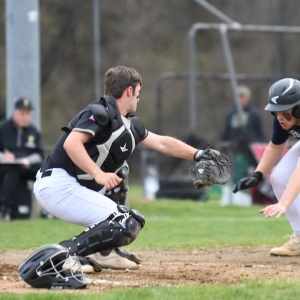My Turn: Shaped by the stories we tell

mactrunk mactrunk
| Published: 01-08-2024 5:08 PM |
There is much talk today about “toxic masculinity,” but I wonder, is it inevitable in this competitive culture that many boys grow up emulating the most aggressive, non-empathetic men among us?
Salmon Rushdie wrote: “I have always been inspired by mythologies, folktales and fairy tales, not because they contain miracles — talking animals or magic fishes — but because they encapsulate truth.” Those from childhood he considered the most formative.
What stories do we tell? What myths so ensnare Americans that too many boys become victims of “toxic masculinity?”
Let me tell you about “The Story of Ferdinand,” a children’s book by Munro Leaf. Ferdinand is a little bull who loves nothing better than to sit under a tree and smell the flowers. In Spain, however, the biggest, toughest, mature bulls are expected to fight in the arena. It is considered a bull’s badge of honor and men are always on the lookout for the most aggressive animal to test their manhood against.
Ferdinand does grow huge and strong, but he remains a peaceful creature at heart. Unfortunately, when the men come to find the fiercest bull, Ferdinand sits on a bee and races around butting and rearing like a wild beast. Immediately he is chosen and taken to the arena.
Alas, no matter how they poke and taunt him, he cannot be provoked to fight. Luckily he is taken home, free from the demands of a culture that is toxic to his sense of self, free to sit under the tree and smell the flowers for as long as he pleases.
Ferdinand does not suffer the fate Maya Angelou speaks of, that “There is no greater agony than bearing an untold story inside you.” He never needs to prevaricate, to suppress his feelings or his truest self to live out his culture’s story of manhood.
Men and women alike need to recognize and encourage tenderness and self awareness in little boys. They need strong, continuing support though, especially from the men in their lives, so they can find the courage as they mature to not succumb to the worst of the patriarchal standards that engulf us.
Article continues after...
Yesterday's Most Read Articles
 Serious barn fire averted due to quick response in Shelburne
Serious barn fire averted due to quick response in Shelburne
 Bridge of Flowers in Shelburne Falls to open on plant sale day, May 11
Bridge of Flowers in Shelburne Falls to open on plant sale day, May 11
 Political newcomer defeats Shores Ness for Deerfield Selectboard seat
Political newcomer defeats Shores Ness for Deerfield Selectboard seat
 Roundup: Pioneer baseball wins Suburban League West title following 2-0 win over Hopkins
Roundup: Pioneer baseball wins Suburban League West title following 2-0 win over Hopkins
 As I See It: Between Israel and Palestine: Which side should we be on, and why?
As I See It: Between Israel and Palestine: Which side should we be on, and why?
 Employee pay, real estate top Erving Town Meeting warrant
Employee pay, real estate top Erving Town Meeting warrant
Mothers and grandmothers can only do so much; humans tend to model their behavior primarily from watching members of their own gender.
There is no “cure” for so-called “toxic masculinity” in a patriarchal, capitalistic society or in any societal structure based on authoritarianism. And there will always be dangerous outliers who encourage violence.
They exist in many animal populations. Robert Sapolsky, an eminent biologist, studied baboons and found that when an alpha male who lacked empathy defeated the kinder one, the entire troop turned into cowering creatures who fought each other for what had been previously shared. The cortisol levels rose to dangerous levels among all. Fearful females were accosted continuously and young baboons were often killed.
There is no doubt that hormones and genes dictate animal behavior to a large degree, and when an environment is increasingly stressful, the most savage survival tactics take precedence. Humans are not immune from these propensities.
Arnold Lobel’s easy reader, “Frog and Toad are Friends,” shows how friendship is a stay against the aching loneliness reported by many men in America. Loneliness is but another outcome of “toxic masculinity.” The old myth that a real man must handle everything alone and keep his feelings bottled up is destructive not only to individual men but to all of us.
Frog and Toad are male critters, living independently, but they always help each other out. Frog coaxes a reluctant Toad to come out and enjoy the spring with gentle humor. Toad consoles Frog when he is ill with his natural tomfoolery. They keep each other’s spirits up as best they can and try to respond to each other’s needs and sad moods. Innate differences are tolerated and when misunderstandings occur, they are soon forgiven.
This story encapsulates the truth that those men who assume responsibility for making others feel safe and show others their tender side are demonstrating a genuinely powerful part of being male. Men can not completely reform a toxic culture that induces aggression and emotional withdrawal, but they can help many a young boy to live the life he was born to live.
“Stories can conquer fear, you know. They can make the heart bigger.” — Ben Okri, Nigerian author
Margot Fleck lives in Northfield and once upon a time was a children’s librarian.

 My Turn: Stop taking all equity in home seizures now
My Turn: Stop taking all equity in home seizures now Robert McGahan: Will Emmet selflessly gives time and energy to town
Robert McGahan: Will Emmet selflessly gives time and energy to town Pam Roberts: Come join Buddy Baseball's new season on May 11!
Pam Roberts: Come join Buddy Baseball's new season on May 11! Bill and Jean Gran: Heath Select Board needs Mike Smith’s broad experience
Bill and Jean Gran: Heath Select Board needs Mike Smith’s broad experience
